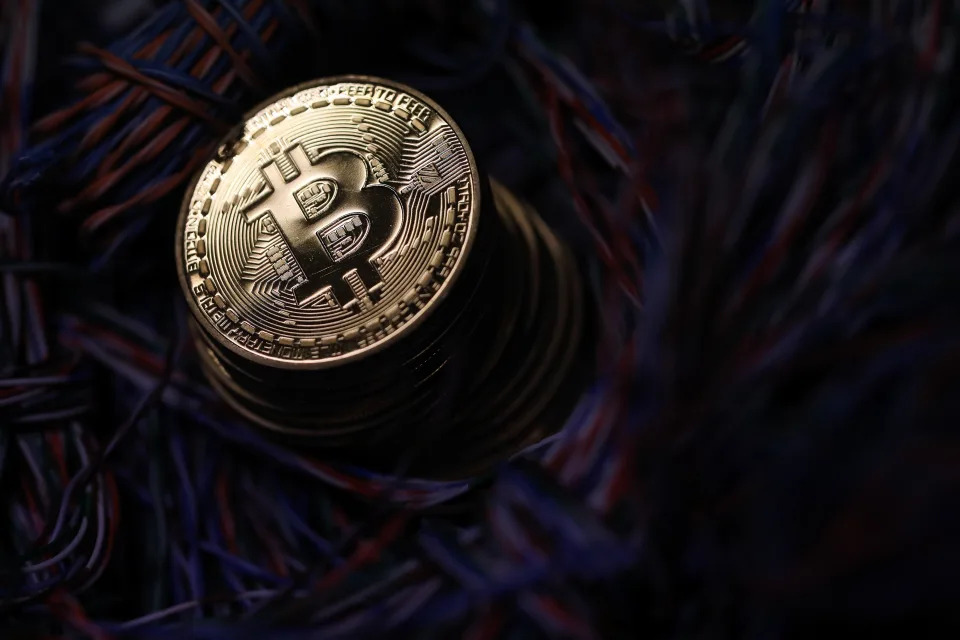News
Crypto adoption grows among brokerages, but regulators remain skeptical

Nearly 400 broker-dealers nationwide have some activities in crypto assets, according to a new report by the Financial Industry Regulatory Authority (FINRA). While the report did not draw conclusions about that statistic, it did note previous warnings it issued about firms' involvement in crypto assets, particularly those not registered as securities, thereby operating on the edge of regulatory oversight.
"FINRA has continued to develop a detailed understanding of member firms' crypto asset activities to inform and enhance FINRA's regulatory operations with respect to these crypto asset activities," the self-regulating body said in the report, released August 13. "FINRA also sought to understand the ways in which member firms were connected to the broader crypto asset industry to enable FINRA to quickly assess the impact of future crypto asset-related events on member firms."
FINRA identified 390 firms involved in crypto activities among nearly 600 member firms who were sent a questionnaire, which means more than 60% of its members are involved in crypto activities.
Those reported ties are wide-ranging and include outside business partners, representatives or parent companies affiliated with digital currencies or a crypto firm. Reported activities also include crypto trading, mining and managing crypto funds.
The results, coupled with FINRA's response by issuing notes and guidance on crypto assets, seem to demonstrate a new stage for the emerging digital asset world, which is being seen more as an asset class and less as a novel risk investment.
"The fact that FINRA regularly conducts rules and guidance updates is an indication that cryptocurrency is becoming more mainstream," said Damon Polistina, director of research at crypto SMA platform Eaglebrook. "As regulators start to view crypto as just another asset class, investors will also likely begin to accept it."
Whether the regulators are actually growing comfortable with crypto, however, is debatable. Both FINRA and the U.S. Securities and Exchange Commission (SEC) have spent years gathering information to identify where crypto assets fit in the securities space and how to oversee crypto, while also mounting enforcement actions.
READ MORE: FINRA, SEC send warning on deepfakes amidst their own AI plans
FINRA noted in the study a handful of previous actions and notices, most recently including potential violations and a January 2024 update to its rule on how firms communicate to the public about their crypto asset-related activities; as well as firms failing to sufficiently supervise crypto trading activities.
"With the growth in this market and increased interest in crypto assets, the potential harm caused by problematic communications has also increased at the same time," said Ira Gluck, FINRA's senior director of advertising regulation, during a FINRA podcast in January regarding a "sweep" the agency did a few months prior on how firms were communicating to the public about crypto assets.
"Before the sweep, we were seeing a non-compliance rate for crypto asset filings of about 40%, and that compares to about 8% for all products," he said. "Customers can also be misled if the communication falsely states, or implies, that the SEC or FINRA has endorsed or guaranteed a particular crypto asset. In order for investors to have enough information to evaluate a crypto asset investment or service, communications need to clearly describe the product's risks and features."
READ MORE: FINRA warns its crypto custody list is mandatory
Separately, the SEC has issued crypto regulations in recent years as it seeks to identify which digital assets are securities and approve certain exchange-trading platforms. Since early 2023, the SEC has also issued dozens of enforcement actions related to crypto firms and exchanges. Most recently the SEC won its first trial against crypto firm Terraform Labs PTE and former CEO Do Kwon, in which the defendants agreed to pay more than $4.5 billion in fines and penalties in June 2024 for crypto fraud.
"In response to this upheaval and rampant noncompliance, we have redoubled our enforcement efforts," wrote SEC Director of Enforcement Gurbir Grewal in an epilogue posted July 2, 2024 to a speech he gave last year. "In short, my tenure as Director has coincided with extreme volatility and investor risk in the crypto markets."
The SEC reported that the number of investor complaints about crypto submitted to its Office of Investor Education and Advocacy has skyrocketed from 820 in 2019 to 5,357 complaints in fiscal year 2023.
READ MORE: SEC's Gensler steps up warnings to money managers on everything from AI to crypto
The crypto market has been around long enough now to go through some collapses of top players, significant investor losses and gains, and enough enforcement actions to have shrunk investor risk-appetite.
A Pew Research Center survey in 2023 found that 43% of respondents who said they have invested in cryptocurrency are not very or not at all confident in its security. Conversely, the Motley Fool Ascent's 2024 Cryptocurrency Investor Trends Survey released this May said "cryptocurrency is back on the rise," with 43% of respondents saying they were somewhat likely or very likely to buy cryptocurrency in the next year.
"As more advisors understand there is a way to allocate to digital assets within FINRA guidelines, it is reasonable that they will further engage with the asset class," Polistina said. "A flywheel effect of acceptance could emerge."
Still, the Motley Fool report also found that among respondents who said they have never owned cryptocurrency, 83% said they're unlikely to purchase crypto in the coming year, indicating a tepid crypto appetite for newcomers.
"In sum, the crypto markets remain fast-moving, volatile and, I believe, rife with investor risk," Grewal said last month. "The Division of Enforcement has moved with urgency, and will continue to do so, to fulfill our investor protection mandate in these markets."

